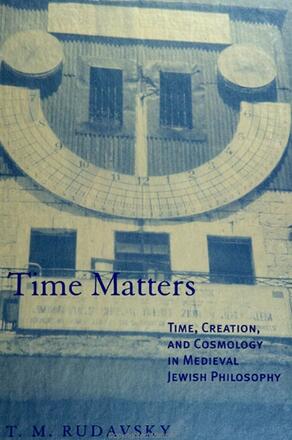
Time Matters
Time, Creation, and Cosmology in Medieval Jewish Philosophy
Alternative formats available from:
Traces the development of the concepts of time, cosmology, and creation in medieval Jewish philosophy.
Description
Despite the importance of time and cosmology to Western thought, surprisingly little attention has been paid to these issues in histories of Jewish philosophy. Focusing on how medieval philosophers constructed a philosophical theology that was sensitive to religious constraints and yet also incorporated compelling elements of science and philosophy, T. M. Rudavsky traces the development of the concepts of time, cosmology, and creation in the writings of Ibn Gabirol, Maimonides, Gersonides, Crescas, Spinoza, and others.
T. M. Rudavsky is Associate Professor of Philosophy and Jewish Studies at The Ohio State University. She is the editor of Divine Omniscience and Omnipotence in Medieval Philosophy: Islamic, Jewish, and Christian Perspectives and Gender and Judaism: The Transformation of Tradition.
Reviews
"The topic is significant, especially now in view of the renewed interest in scientific cosmology and its relation to religion, but it is also of great importance for the history of medieval Jewish, Christian, and Islamic philosophy. The book covers a wide range of difficult, often technical philosophical ideas and theories in a highly analytical and systematic fashion, and I especially like the author's consistent ability to sketch out the arguments of these thinkers in a careful and lucid way. She also displays considerable erudition in both original sources and scholarly literature, regardless of whether the discussions are historical or philosophical. I found the book interesting and illuminating. " — Barry S. Kogan, author of Averroes and the Metaphysics of Causation